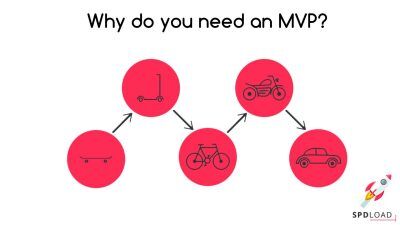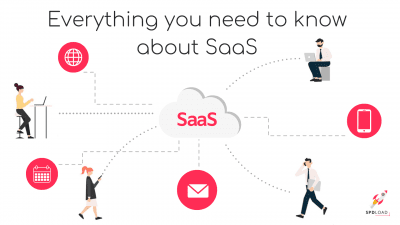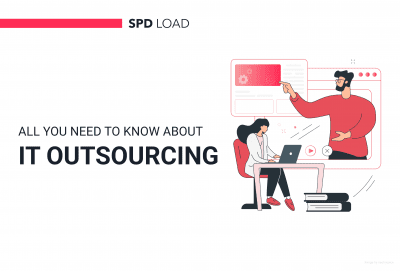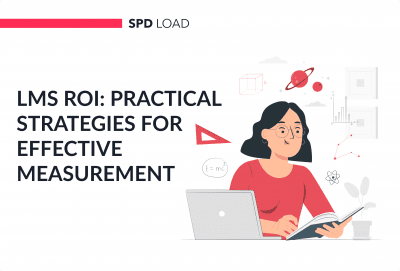18 Key Mobile App Development Trends
- Updated: Nov 12, 2024
- 10 min
By 2027, the global mobile app market is expected to exceed $673.80 billion, making mobile app development one of the most dynamic sectors in the tech industry.
With smartphones becoming an integral part of our daily lives, developers, businesses, and consumers need to understand the latest trends in mobile app development.
Budgeting for an app? Our article on app development costs gives you the insights you need to plan your project smartly.
From the emergence of augmented reality to the growing importance of mobile app security, some of the most exciting advancements are on the horizon.
That’s why we’ve put together a list of the top 18 mobile app development trends that are shaping the future of how we interact with technology.
Ready to build your app? Discover how to outsource mobile app development and work with top-notch experts.
Bring your app idea to life with our expert software developers — contact us today to get started!
Key Mobile App Statistics for 2025
- Mobile apps are expected to generate more than $522 billion in revenue in 2025.
- The Apple App Store has 1.64 million apps available for download, while the Google Play Store offers 3.55 million.
- Around 21% of millennials open an app more than 50 times per day, and 49% of people open an app at least 11 times per day.
- Mobile apps account for 70% of all US digital media time.
- On average, smartphone owners use 10 apps daily and 30 apps monthly.
1. AI and ML Integration
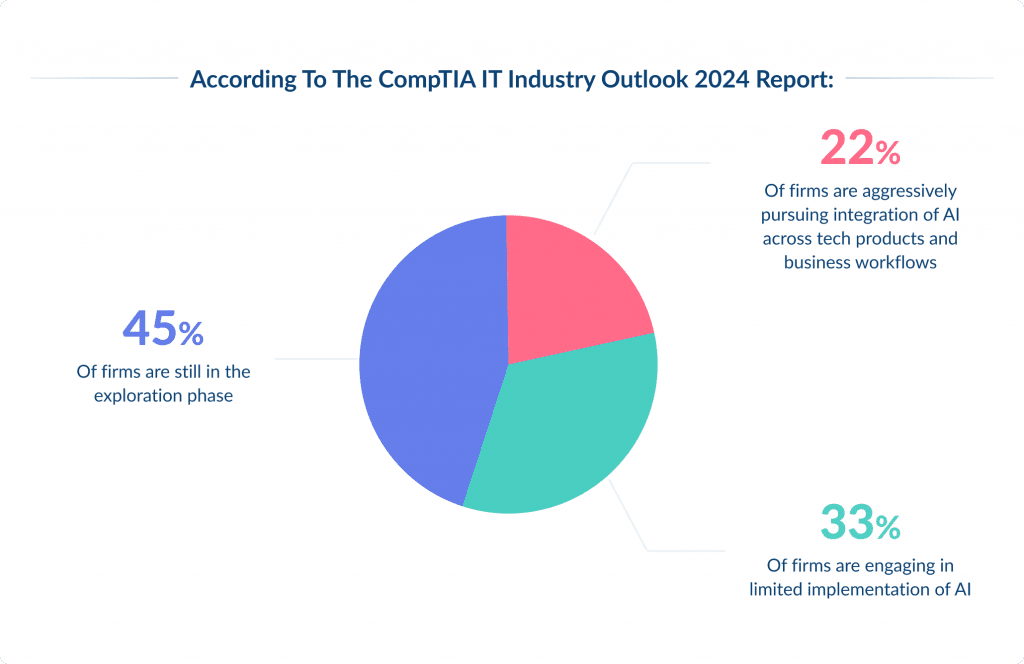
Artificial Intelligence (AI) and Machine Learning (ML) are not just fancy words but essential technologies that are reshaping mobile app development in the US.
According to a recent Gartner report, over 37% of organizations have implemented AI in some form, showing its growing significance.
Integrating AI and ML into mobile apps enhances user personalization, improves decision-making processes with predictive analytics, and automates tasks, significantly improving user engagement and operational efficiency.
For example, AI-powered algorithms can analyze user behavior to deliver tailored content, recommendations, and notifications, increasing app retention rates.
Furthermore, AI and ML play a crucial role in developing advanced features such as voice recognition and language translation, making the apps more user-friendly and intuitive for a global audience.
2. AR and VR Experiences
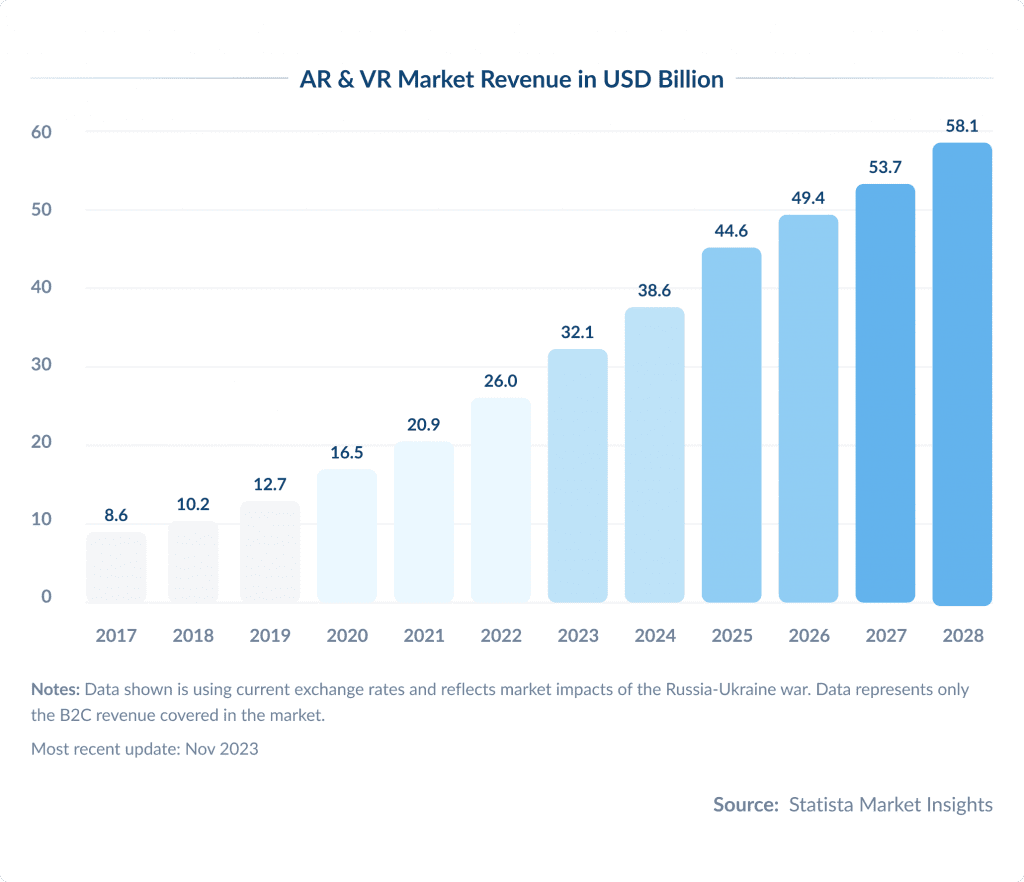
The mobile app landscape is being transformed by augmented reality (AR) and virtual reality (VR), offering immersive experiences that users love.
With the AR and VR market projected to reach market volume of $58.1bn by 2028, it’s clear that these technologies are gaining rapid acceptance.
From user adoption to industry trends, these AR statistics give you a snapshot of the market.
From retail to healthcare, education to real estate, AR and VR are expanding beyond gaming and have become a significant part of mobile apps.
For instance, retail apps use AR to enable customers to visualize products in their own settings before making a purchase, making shopping a more enjoyable experience. Similarly, educational apps use VR to create immersive, engaging learning environments that make even the most complex subjects accessible.
Ready to enter the education tech field? Feel free to discover EdTech startup ideas that can change how people learn and grow.
These technologies are becoming more accessible to developers and users alike, thanks to advancements in mobile hardware, fueling their widespread adoption in mobile apps.
3. 5G Technology Advancements
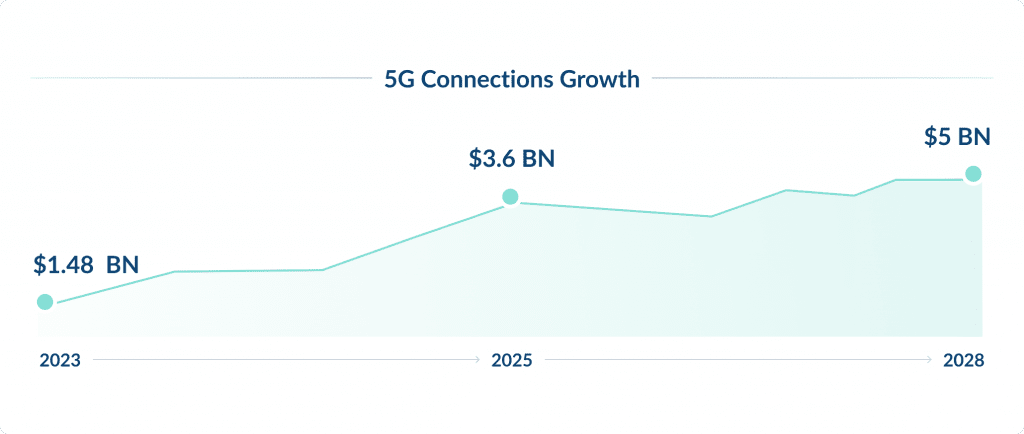
The mobile app development industry is about to undergo a massive transformation with the advent of 5G technology.
With an expected increase of 1.48bn million 5G connections in 2023, rising to 3.6 billion by 2025, 5G has the potential to revolutionize mobile app development.
This technology will enable the development of more advanced apps requiring real-time data processing, such as augmented reality, online gaming, and IoT applications.
With its high-speed data transfer, 5G will allow for seamless video streaming, making it ideal for apps in social media, entertainment, and education sectors.
Moreover, 5G will play a crucial role in the IoT revolution, enabling apps to connect with a vast network of devices and making smart homes and cities more integrated and functional.
4. Internet of Things (IoT) Integration
The Internet of Things (IoT) is quickly becoming a crucial aspect of mobile app development, with the global IoT market expected to hit $1.387 trillion by the end of 2025.
Integrating IoT allows mobile apps to communicate with connected devices, providing users with a more seamless and automated experience.
Whether it’s smart home apps that manage lighting and temperature or health apps that track biometric data from wearable devices, IoT is improving the functionality and usefulness of mobile apps.
Moreover, IoT integration is opening up new app functionalities in industries like agriculture, manufacturing, and logistics, where real-time monitoring and device control can significantly enhance productivity and efficiency.
5. Progressive Web Apps (PWAs)
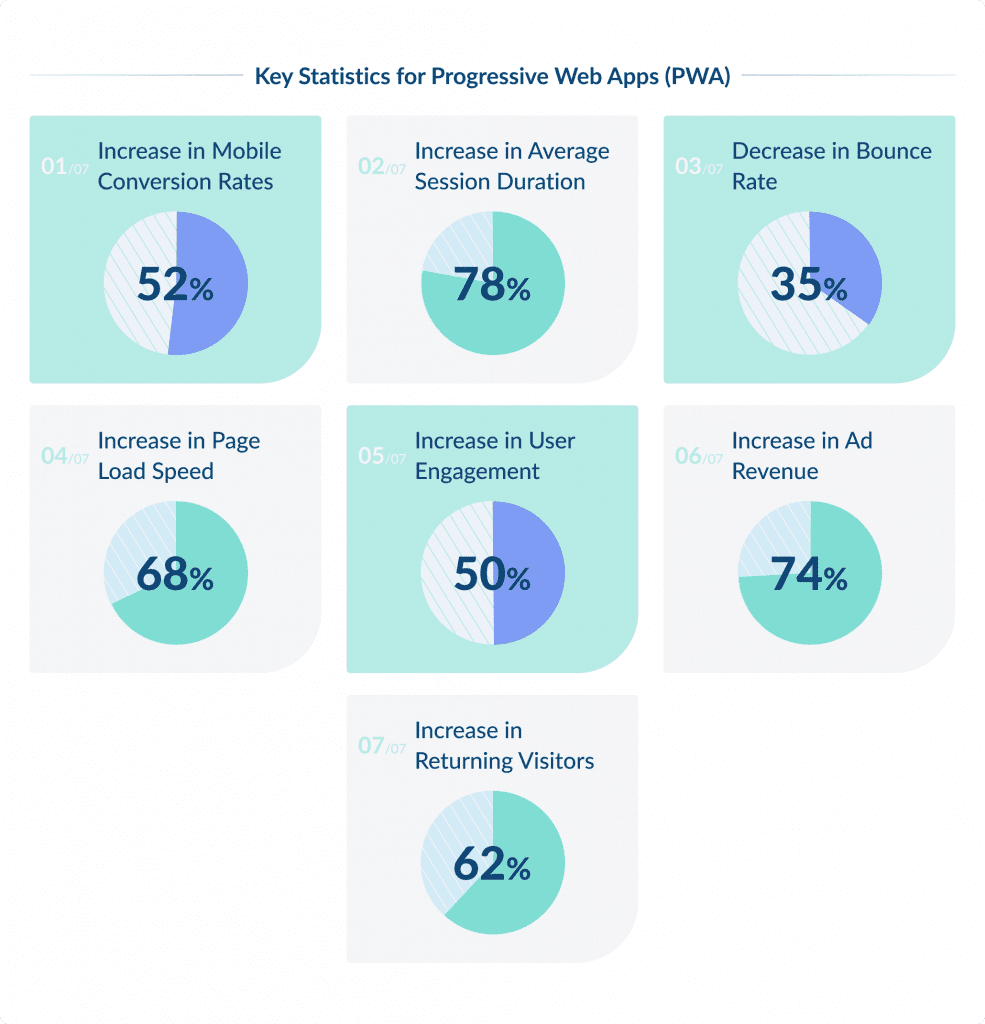
Progressive Web Apps are transforming web development by providing app-like experiences within web browsers.
In fact, PWAs have been shown to have a conversion rate that’s 36% higher than native mobile apps, making them a powerful tool for engaging users.
One of the main benefits of PWAs is that they enable businesses to reach a wider audience without requiring users to download an app from a store.
They’re designed to be fast, reliable, and work seamlessly with users’ devices, even offline.
Adopting PWAs can save you significant time and money on development and maintenance costs, all while providing your users with an engaging web application experience.
6. Voice-Activated Apps
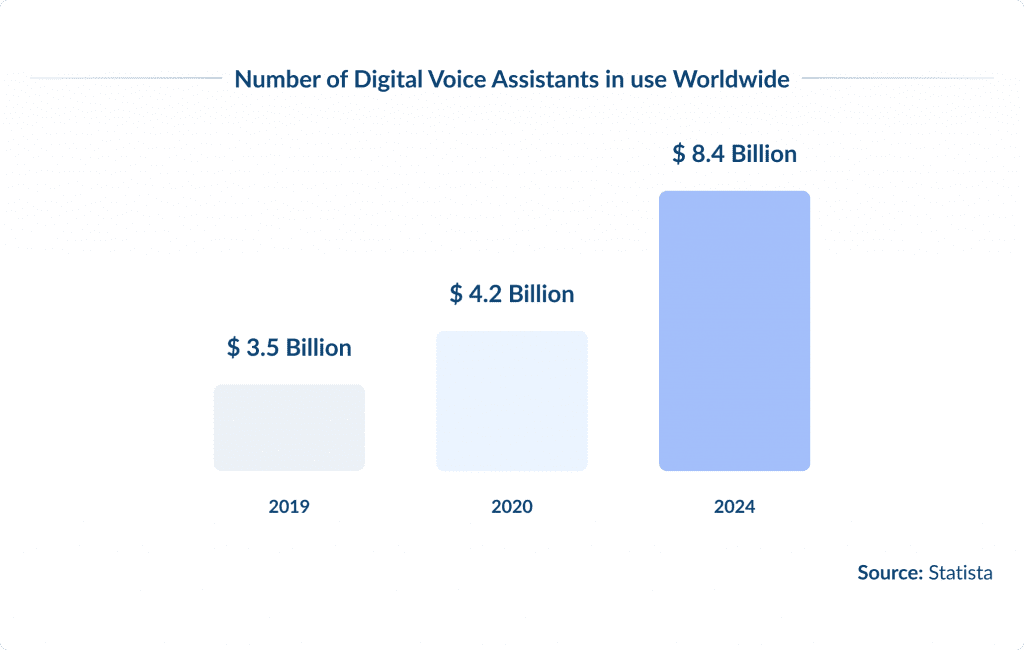
The use of voice-activated technology is transforming the way people interact with their mobile devices in the US.
As of 2025, over 8.4 billion digital voice assistants are being used worldwide, which is expected to rise.
Voice-activated apps are gaining popularity due to their hands-free operation, making them perfect for activities such as navigation, retrieving information, and enhancing accessibility.
With the help of artificial intelligence, voice technology can now understand and process natural language, making apps smarter and more user-friendly.
Developers are incorporating voice activation features into their apps more frequently, creating more natural and intuitive user interactions.
Expertise gap? Let's bridge it together. Share your needs and elevate your team with our experts.
7. Blockchain Implementation
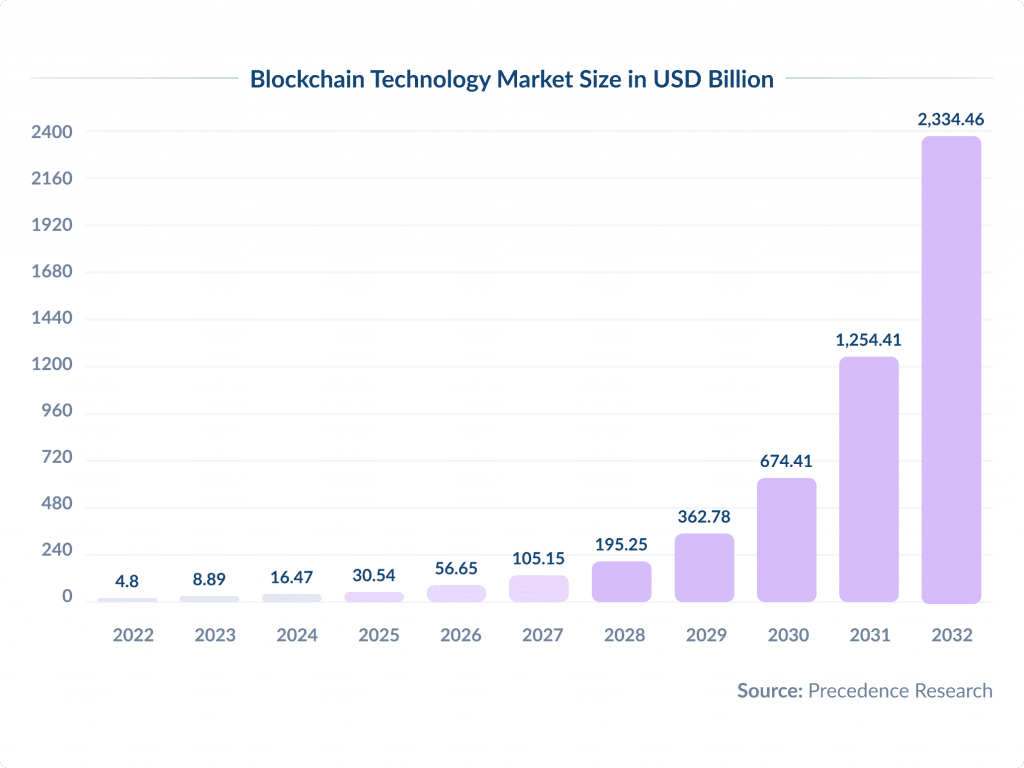
Blockchain technology is gaining recognition beyond cryptocurrencies, offering a new level of security and transparency in mobile apps.
The global blockchain technology market was valued at $4.8 billion in 2022 and is projected to surge to $2,34 trillion by 2032, indicating its rapidly growing adoption across various industries.
Blockchain’s decentralized nature ensures secure, tamper-proof transactions, making it ideal for finance apps, secure messaging apps, and apps requiring immutable data records.
Its implementation in mobile apps enhances user trust by safeguarding personal and transaction data, enabling features like smart contracts, and providing a transparent ecosystem for users to interact within.
If you want to create an app with seamless chats to satisfy your users — check out how to create a messaging app step by step.
8. Chatbots and Conversational Interfaces
Mobile app technology is rapidly evolving by integrating chatbots and conversational interfaces, transforming customer service and user engagement.
By 2025, up to 80% of businesses are expected to implement some form of chatbot automation, highlighting the shift towards AI-driven customer interactions.
Chatbots within mobile apps provide 24/7 support, instant replies to inquiries, and personalized communication, significantly enhancing the user experience.
With improvements in AI and natural language processing, chatbots are becoming more adept at handling complex conversations, providing accurate responses, and even anticipating user needs, thereby fostering a more engaging and interactive app environment.
9. Mobile Wallets and Payments
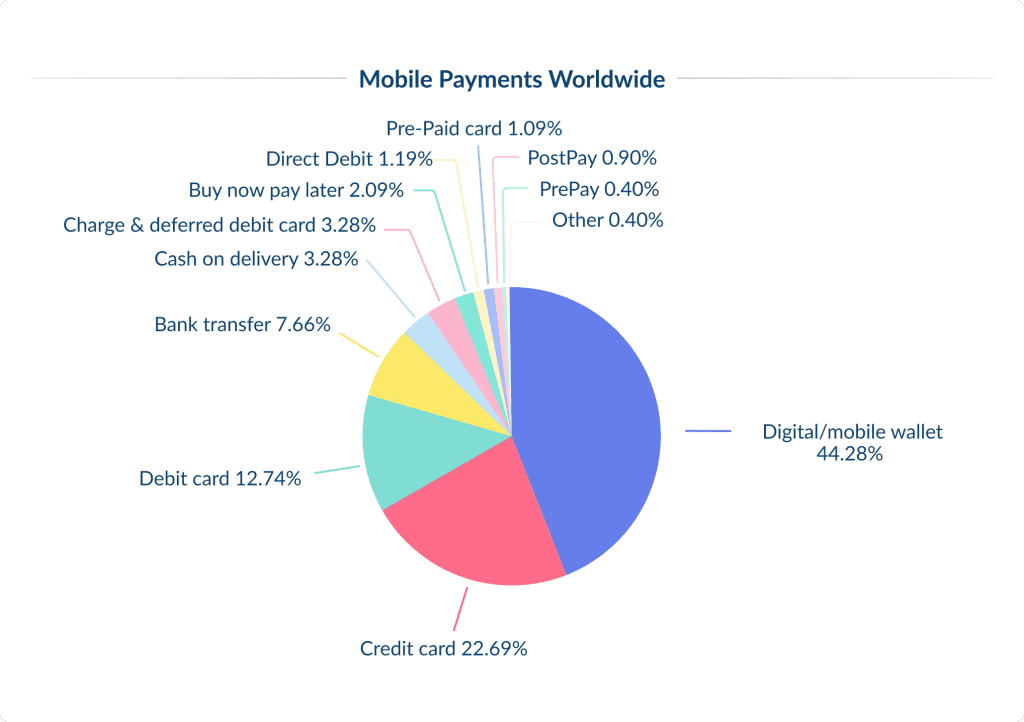
The market for mobile payments is growing at an explosive rate and is expected to reach a transaction value of $6.11 trillion by 2028, up from $3.78 trillion in 2025.
This growth is fueled by the convenience, speed, and secure nature of mobile wallets and payment apps, which are encouraging users to move away from traditional payment methods and towards mobile transactions.
These apps make transactions easier and offer loyalty programs and personalized deals, making shopping more enjoyable.
With the increasing use of NFC technology and QR codes, mobile wallets are becoming more versatile, allowing for contactless payments across a wider range of services and retailers.
This is further boosting their popularity among consumers.
10. Enhanced App Security Measures
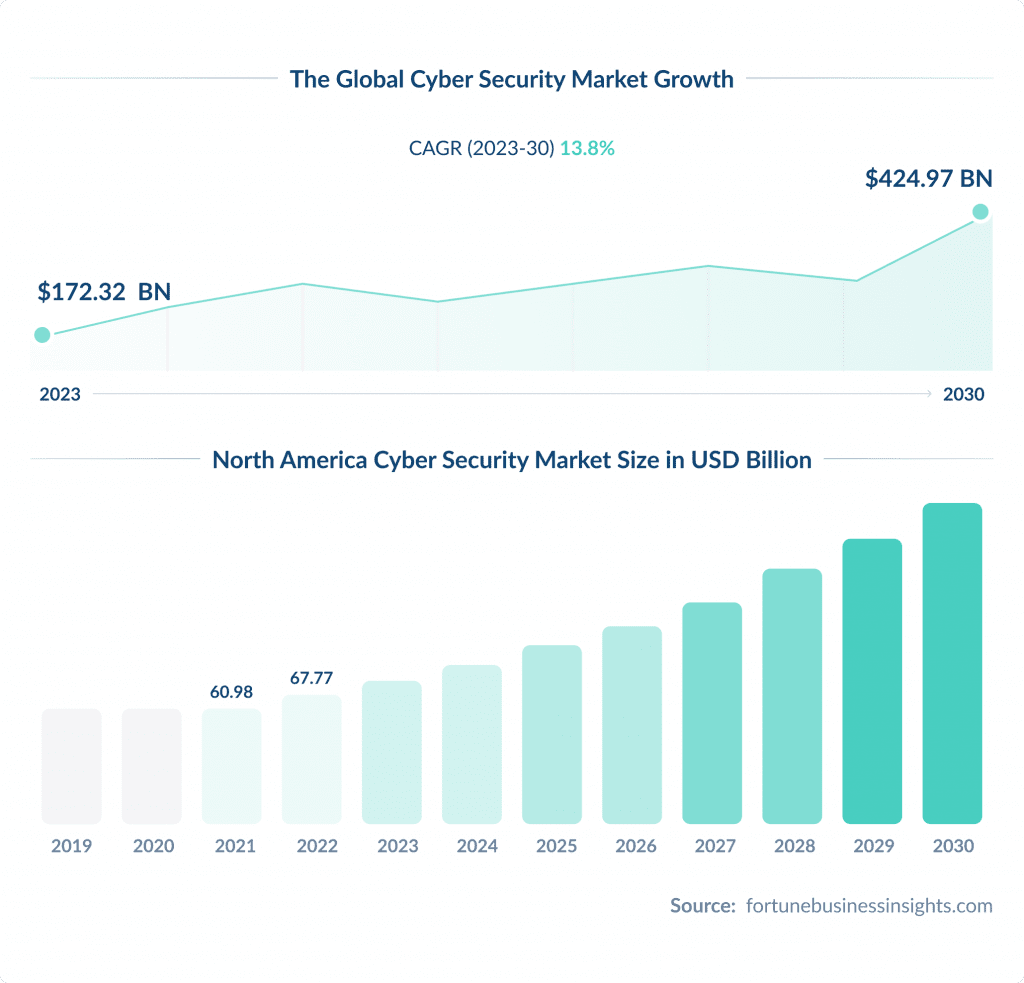
Mobile app security is becoming increasingly essential as data breaches become more common.
The global cybersecurity market was valued at $172.32 billion in 2023 and is expected to grow to $424.97 billion by 2030.
This highlights the critical need to invest in securing digital assets.
Mobile apps now incorporate advanced security measures, such as biometric authentication, end-to-end encryption, and secure coding practices, to protect sensitive user data.
By prioritizing security, developers safeguard against cyber threats and build user trust. This is a crucial factor in app retention and success.
To ensure compliance with global data protection regulations and standards, developers are now prioritizing security from the initial stages of app development.
Unleash AWS's Full Potential with Our Developers.
11. Cross-Platform Development Tools
The demand for mobile app development tools that work across different platforms is increasing rapidly, and the market is expected to experience significant growth.
These tools allow developers to write code once and use it on multiple platforms, significantly reducing development time and cost.
Popular frameworks like React Native, Flutter, and Xamarin are enabling developers to create high-quality apps that look and feel like native apps for both iOS and Android using a single codebase.
This approach streamlines the development process and ensures a consistent user experience across various devices, which enhances user satisfaction and engagement.
Wondering what it takes to budget for your app? Our breakdown of Android app development costs can help.
Also, feel free to explore these best iOS app development tools that simplify the iOS app development process.
12. Personalized User Experiences
Creating personalized experiences is crucial in today’s mobile app development landscape, as 80% of users are more likely to engage with a company that offers customized content.
AI and data analytics are essential tools in enabling tailored content, recommendations, and notifications based on user behavior and preferences.
By providing a highly personalized experience, mobile apps can increase user engagement, retention, and satisfaction, making users feel valued and understood.
Through personalization, mobile apps can differentiate themselves in a competitive market by offering unique and customized user experiences.
Need guidance on how to choose an app development company? This guide has you covered.
13. Cloud-Based Mobile Apps
Cloud-based mobile applications are revolutionizing the world of app development and usage with the help of cloud computing’s power and flexibility.
Cloud-based app development enables businesses to provide reliable, fast service to their customers.
As of 2025, an overwhelming 94% of enterprises were already using cloud services, which underlines the critical role of cloud computing in modern technology strategies.
Cloud-based apps offer scalability, reliability, and cost-efficiency, making it easier for businesses to manage large volumes of data and complex processes without investing heavily in physical infrastructure.
These apps provide seamless experiences across devices, ensuring that user data is accessible and up-to-date, no matter which device is used.
Additionally, cloud services enable advanced features like real-time analytics, machine learning, and artificial intelligence, which enhance app functionality and user engagement.
14. Edge Computing for Faster Processing
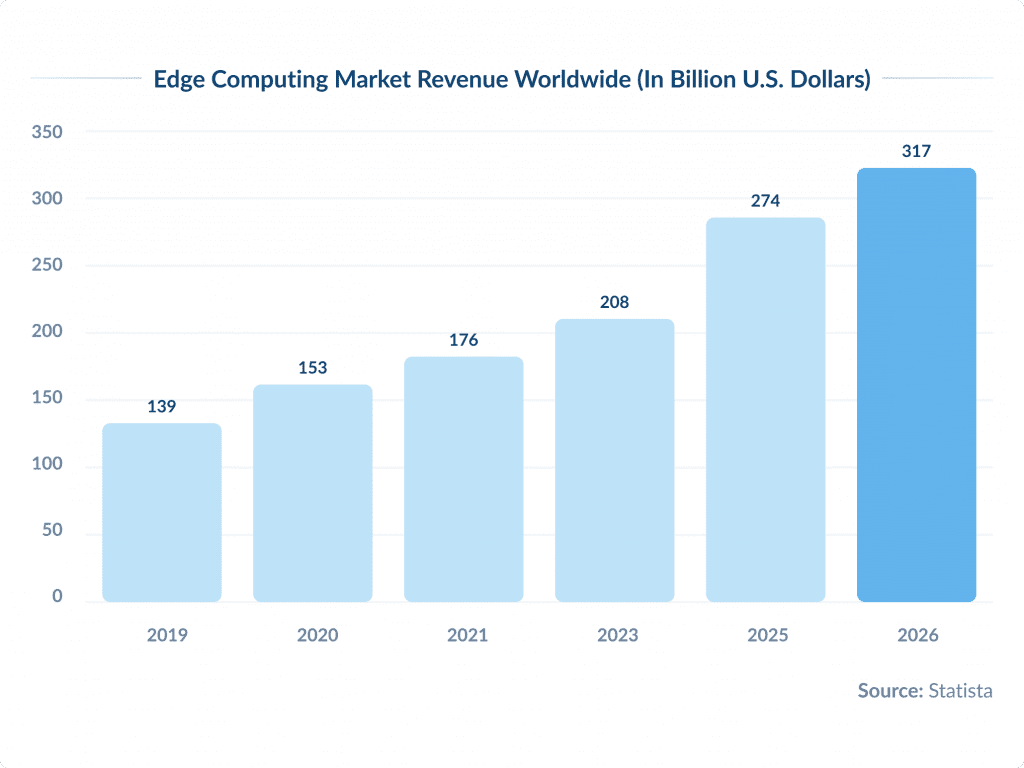
Edge computing is poised to revolutionize mobile app performance by processing data closer to its source, greatly reducing latency and bandwidth usage.
This technology is essential for real-time applications, IoT devices, and services that require fast data processing.
By 2026, the edge computing market is projected to reach $317 billion, highlighting its increasing significance.
Leveraging edge computing, mobile apps can offer quicker and more dependable services, resulting in better user experiences in areas such as gaming, video streaming, and augmented reality.
Moreover, edge computing enhances privacy and security by localizing data processing, reducing the risk of data breaches associated with centralized processing.
15. App Gamification Strategies
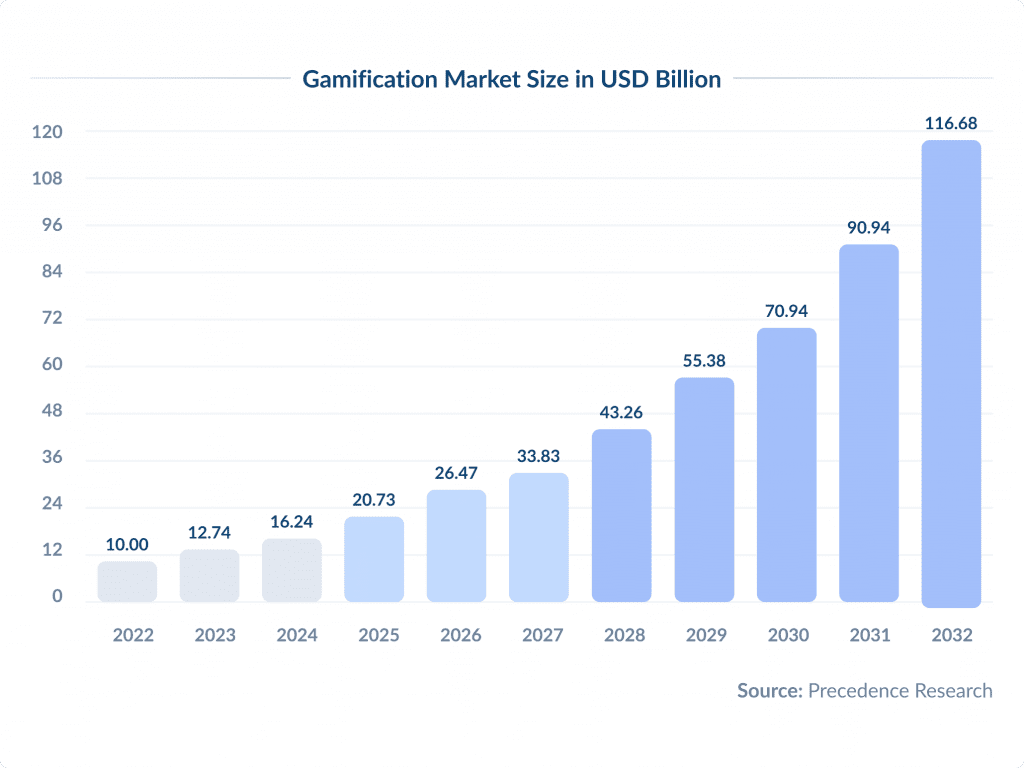
Gamification is becoming increasingly popular in mobile app development to boost user engagement and retention rates.
By integrating game-like features in non-game contexts, apps across multiple industries have seen a significant rise in user interaction and satisfaction.
For example, educational apps make learning more engaging by using gamification, while fitness apps incentivize users through challenges and rewards.
The global gamification market was valued at $10 billion in 2022 and is expected to grow to $116.68 billion by 2032, highlighting the effectiveness of gamification strategies in driving user engagement and achieving business objectives.
16. Wearable Devices Opportunities
The market for wearable devices is on the rise, with over 1.1 billion devices in use in 2022.
This growth presents significant opportunities for mobile app developers to create apps specifically for wearables, such as smartwatches and fitness trackers.
These wearable apps focus on health monitoring, fitness tracking, and providing notifications, all of which enhance the utility of wearable devices.
By integrating with mobile apps, users can enjoy a seamless experience where data collected by wearables can be analyzed and displayed in a user-friendly way on their smartphones.
This integration also offers personalized insights and recommendations.
The fitness app market is booming. Check out some unique ideas for fitness apps.
17. Data Sharing Importance
In today’s world of big data, sharing and analyzing data securely and efficiently has become a fundamental requirement for mobile app development.
With an overwhelming amount of data, which amounts to over 328.77 million terabytes generated daily, apps that can utilize this data through sharing and analysis can offer significant benefits.
Data sharing can promote collaborative features, provide personalized user experiences, and enable advanced analytics.
However, it also requires strict security measures to protect user privacy and comply with data protection regulations.
Apps that implement effective data-sharing mechanisms can improve user engagement by providing more relevant and timely content, recommendations, and services.
18. Privacy-Focused App Design
As users become more aware of their data privacy rights, app developers in the US are placing greater emphasis on privacy-focused design.
Regulations such as GDPR in Europe and CCPA in California demand that apps prioritize user privacy in their design and functionality.
To achieve this, features such as data minimization, end-to-end encryption, and transparent user consent mechanisms are being incorporated into app design.
By prioritizing privacy, apps can improve user engagement and loyalty by building trust through robust privacy protections.
Furthermore, privacy-focused apps are better placed to comply with global data protection regulations, which can prevent potential legal and financial issues.
Conclusion
Mobile app development is evolving rapidly, bringing new ways to engage users and streamline experiences.
The key takeaway is the push towards more personalized, efficient, and secure applications. For developers, staying updated with these shifts is crucial.
The future looks promising, with plenty of opportunities for innovation.
The challenge will be to balance these advancements with user privacy and security needs.
Curious about what’s next in tech? Dive into our IT trends.





